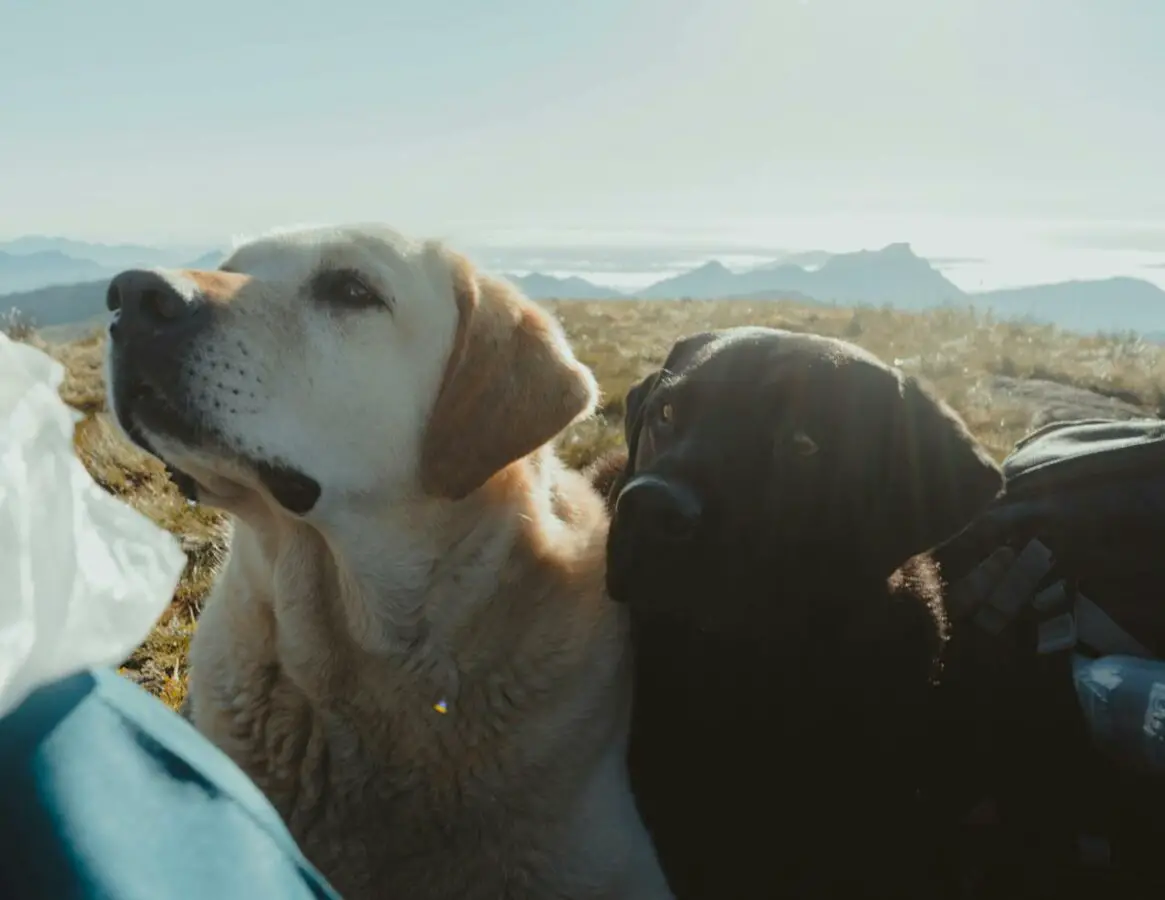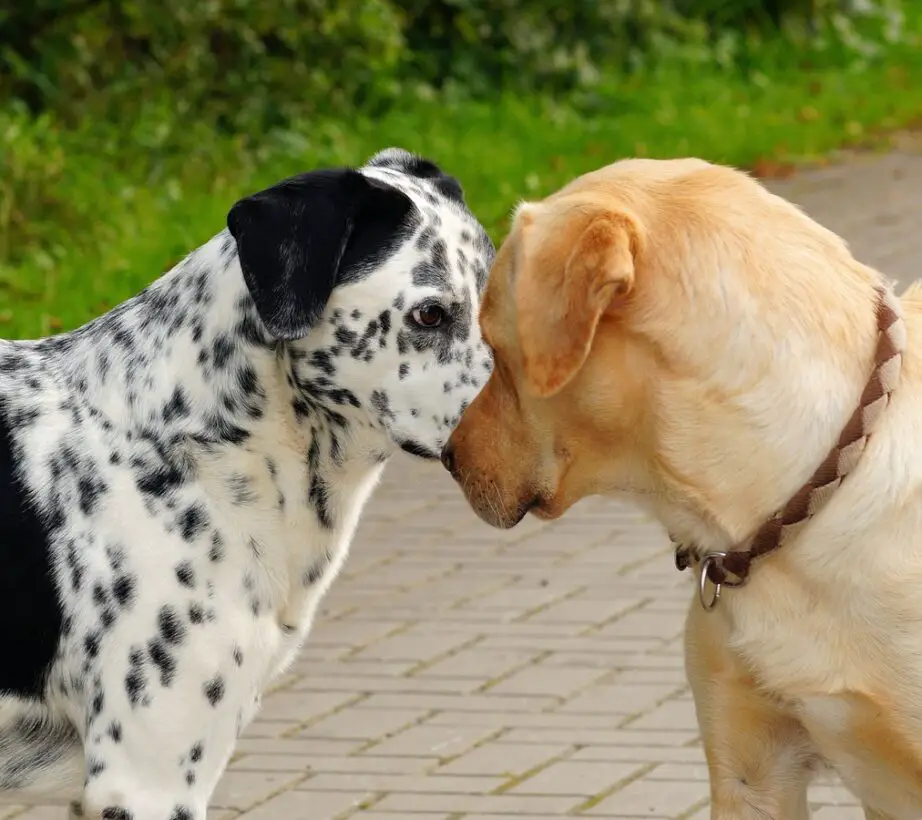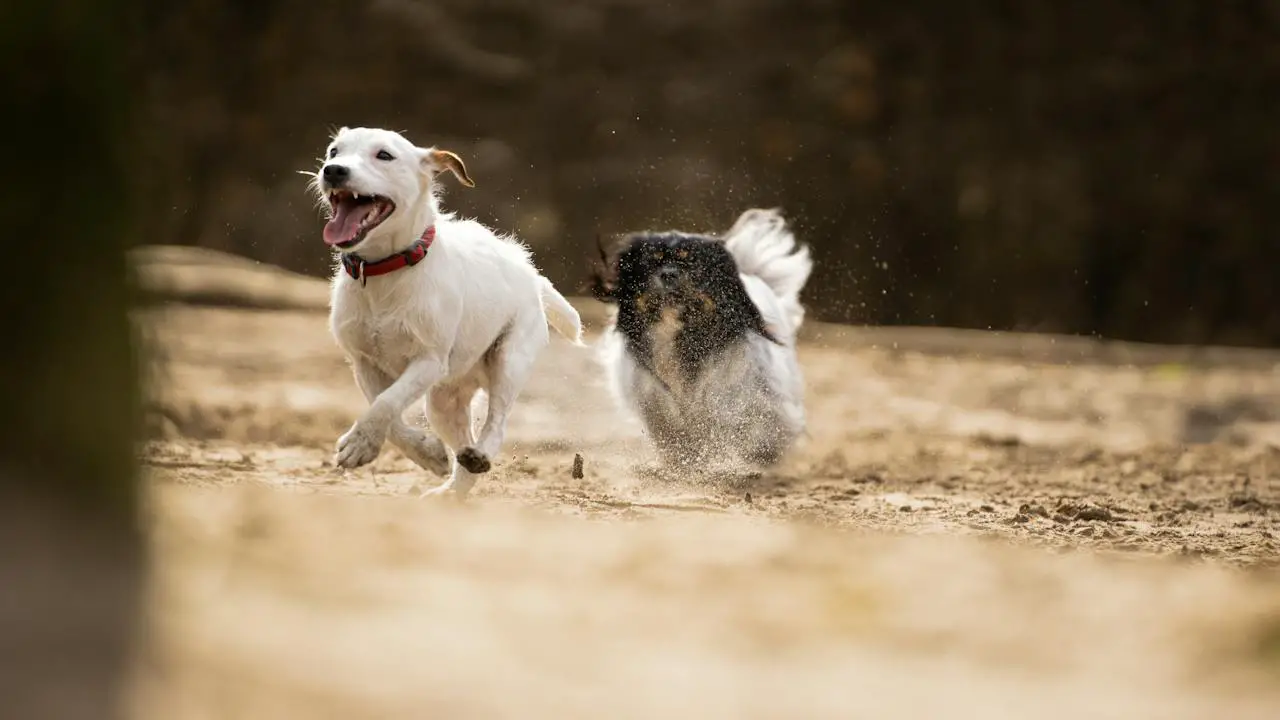Renaming a dog usually happens when people adopt a dog but really do not like their name.
However, are dogs able to learn their new names at any stage of their lives?
When I adopted my second dog, I had to rename it because I already had one Lucy at home.
Here is how my dog renaming journey went and things I wish I knew sooner.
- Is It Too Late To Change Your Dog Name?
- When Should You Change Your Dog’s Name
- How To Change Your Dog’s Name and Teach Them
- How Long Does It Take For Dogs To Learn Their New Names?
- Should You Change Your Dog’s Name?
- Are Dogs Capable of Understanding Nicknames?
- What Can Happen If You Change Your Dog’s Name?
- Things To Be Aware Of When Changing a Dog’s Name
- In Conclusion
Is It Too Late To Change Your Dog Name?

It’s never too late to change your dog’s name, as dogs can learn new commands and names at any age with consistent and positive reinforcement.
Changing an adult dog’s name doesn’t have to be a difficult process as long as you are consistent in its use.
Start by gradually introducing the new name every time you address them and combine it with positive reinforcement techniques like treats or verbal praise.
After several weeks of repetition, they should start responding positively to their new moniker.
To further ease the transition, try using some of their old names during this period so they don’t get too confused during this transition period.
Just like people, dogs can benefit from a name change if the old one doesn’t quite fit or doesn’t reflect their personality.
Whether you want to give your pup a fresh start with a new identity or simply want to spice things up a bit, changing your dog’s name is an easy way to achieve this effect.
When Should You Change Your Dog’s Name

- When you rescue a dog from the shelter. Most shelters name their animals with a basic moniker, such as “Spot” or “Fido,” and it’s up to the adopter to change it if desired. This helps ensure your new pup starts out with a fresh identity and learns commands with its chosen name right away. Of course, some people opt to keep the original name – which is perfectly acceptable! If you do decide to change your dog’s name, make sure you use positive reinforcement when training them on it; be consistent in using only the new name and reward them when responding correctly to commands given under it.
- When the dog’s previous home was abusive. If you adopt a puppy that comes from an abusive home, changing its name will be seen as an act of kindness. It is important to make them forget everything associated with their previous abusive environment. Even if your pup has had its name for some time, changing it can be an important part of helping them feel secure and at home in its new environment.
- When your dog is ignoring his name. Some dogs don’t really know their names because the previous owner didn’t do a good job at associating the name with them. If your pup doesn’t seem to be responding when called by name, it could be because they are easily distracted while out in public or they simply don’t understand what their name means yet. So, if your dog is ignoring his name, it is time for a new one.
- You already have a dog with that name. This actually happened to me. I saw the sweetest girl in the shelter but her name was Lucy. The problem was that I already had a dog names Lucy and there was no way I could have them both keep the name. So, I changed my dog’s name from Lucy to Lea which is pretty similar but yet different enough.
How To Change Your Dog’s Name and Teach Them

- Keep it similar to the previous name. Changing a dog’s name can seem like an intimidating prospect, especially if you have had them for some time. But with patience and consistency, your pup will quickly adjust to its new name. What helps is when you give them a new name very similar to their old one, as I did. From Lucy, we went to Lea and the transition was smooth. I started by calling her Lucy, Lucia, Lu, and finally Lea. She probably didn’t even notice that her name changed.
- Give them a simple and easy-to-remember name. Avoid tough names like Lancelot, Leonidas, Hercules, Galahad, and whatnot. Stick to simple names like Bella, Max, and Milo. Try to find the closest variation to their previous name and keep it simple. For example, if your dog is called Cooper, you can call it Cleo or Coco.
- Choose a name that doesn’t sound like a command. When giving your dog a new name, avoid giving them a name that can be mistaken for a command. For example, Bo sounds like a No, while Ray may sound like a Stay, and Pit can often be confused with Sit. Also, try to avoid names close to your pets at home. For instance, if you have a dog called Lilly, avoid naming your new dog Milly says Rover.
- Play games to make them learn their new name. Dogs learn new things through play. If you associate some task with fun and treats, they will pick it up faster. You can play the name game with your dog. Grab a bunch of treats and start calling them their new name. If they come, give them a treat.
- Always use positive reinforcement. Dogs enjoy positive reinforcement. That ”You are such a good boy” is sometimes more appreciated than a treat. So, every time your dog comes or responds when called by the new name, give them positive reinforcements says PetFinder.
How Long Does It Take For Dogs To Learn Their New Names?

It can take up to a month for young puppies to learn their new names while older dogs might take up to two months before they start responding to their new names.
When it comes to learning a dog’s new name, age, and previous experiences all play an important role. Puppies generally respond faster to new names than adult dogs who have had different names for most of their lives.
Younger dogs typically show more enthusiasm and are eager to please, making them highly responsive to learning.
Therefore, younger dogs may start responding to their new name within days or even hours after being introduced to it.
Older dogs may need more reinforcement and repetition before they form an association between themselves and the name they have been taught.
Allowing extra time during training sessions can help expedite this process along with positive reinforcement such as treats or praise when responding correctly to their name helps expedite this connection quicker says Chewy.
Should You Change Your Dog’s Name?
If you adopted an adult dog whose name didn’t suit you, changing its name might be worth considering; some dogs take some time to adjust, while others may already know the old one and become confused when asked for something different.
When adopting or purchasing a puppy, consider whether they are too young for a name change.
Puppies often learn quickly while older dogs may struggle with such changes.
Furthermore, if the pup already knows his current name and responds well when called, then there’s no need to teach them another one.
Simply stick with what you have and let him keep it until he reaches adulthood.
When changing a dog’s name, be sure to give him plenty of positive reinforcement when they respond correctly.
Speak the new name firmly and clearly, using treats or praise when he gets it correct.
Most importantly, don’t punish him if it takes some time – this could lead to confusion and frustration for both of you says WikiHow.
Are Dogs Capable of Understanding Nicknames?
Yes, dogs are capable of understanding nicknames. In fact, research has indicated that dogs respond better to a nickname than their given name because it conjures up memories of positive reinforcement and love from their owners.
Nicknames may help distinguish your pup from other similar-sounding names that could be used at home or family gatherings.
Additionally, hearing your pup’s unique nickname signals them that you are talking exclusively to them!
To ensure your pup understands his/her nickname correctly, use it consistently when calling them and reward them with treats or attention when they respond correctly.
What Can Happen If You Change Your Dog’s Name?
Changing a dog’s name can be an unsettling experience for them. Dogs, being creatures of habit and seeking familiarity, may struggle with recognition when being called by their new name – especially if they had previously learned how to respond to their old caller.
It could even cause confusion as to who is calling them if the new name has not been taught yet.
Giving an animal a new name can have psychological effects depending on the reason and frequency.
It’s essential to remember that this may cause anxiety for your pup.
When introducing the name, start slowly by using it consistently in short commands (such as “sit”), then add more phrases with the new phrase over time as your dog becomes familiar with it.
Another thing to consider when calling your pet a new name is how other people and animals respond.
If you have multiple pets, they could become confused if one of their siblings suddenly has a different moniker.
Things To Be Aware Of When Changing a Dog’s Name

- Confusion. When changing a dog’s name, it should be done gradually and not all at once. Start by using the new moniker occasionally during playtimes, training sessions, and meal times until your pup becomes familiar with its new identity. As they get used to their new moniker, gradually begin phasing out the old one.
- Be consistent when calling your pup by his new name. If you make exceptions or slip up, it could cause confusion for both of you and make the transition difficult.
- This could not go smoothly. Bear in mind that dogs possess excellent memory. If they have already learned their previous name, chances are they will retain it permanently. Avoid confusing your pup by alternately calling him his old and new names.
- Make sure everyone calls them by their new name. If your pup’s former name was something used by another family member (e.g., a pet or sibling), try not to refer to them by the old one when calling them. Doing this can help minimize any confusion they may feel and also allow them to focus on learning their new name more easily.
- Don’t lose your temper. Be patient with the process. Changing a dog’s name isn’t something you can do overnight. It will take time, consistency, and understanding for your pup to learn its new name. Don’t get frustrated if it takes longer than expected; with enough love and positive reinforcement your pup will eventually respond appropriately to its new label.
- Always be positive. Most importantly, remain positive throughout the entire process! Your pup should associate their new name change with joyous occasions and plenty of treats.
FAQs
Q: Will changing my dog’s name confuse them?
A: Initially, your dog may be a bit confused when you start using the new name, especially if they are used to responding to their old name. However, with consistent reinforcement and positive associations, they will quickly learn their new name.
Q: Can I change my adopted dog’s name?
A: Yes, you can definitely change an adopted dog’s name. The key is to use the new name consistently and establish positive associations with it through treats, praise, and attention.
Q: What should I do if my dog doesn’t respond to the new name?
A: If your dog doesn’t respond to the new name at first, don’t get discouraged. Keep using the new name consistently, and pair it with positive reinforcement like treats and playtime to help them associate the name with something good.
Q: Can changing a dog’s name affect their behavior?
A: Changing a dog’s name typically doesn’t have a direct impact on their behavior. However, using their new name consistently and positively can strengthen your bond and improve communication between you and your dog.
Q: How long does it take for a dog to learn their new name?
A: Every dog is different, but with consistent training and positive reinforcement, most dogs can learn their new name within a few days to a couple of weeks.
Q: Is there a best time to change my dog’s name?
A: The best time to change your dog’s name is when you can be consistent in using the new name and providing positive reinforcement. Pick a time when you can focus on training and avoid confusion with other changes in your dog’s routine.
Q: Can I change my dog’s name more than once?
A: While it’s possible to change your dog’s name more than once, it’s generally best to minimize name changes to avoid confusion. Try to choose a name that suits your dog and stick with it for their comfort and stability.
Q: What if my dog’s old name has negative associations?
A: If your dog’s old name has negative associations, changing it can help create a fresh start and improve their overall well-being. Introduce the new name with positivity and help them associate it with love, fun, and treats.
In Conclusion
It is never too late to change your dog’s name.
The only difference is the time it will take your dog to learn the new name.
Young puppies tend to learn faster while older dogs are slower in learning.
But in both cases, they will eventually learn their new names.





Leave a Reply